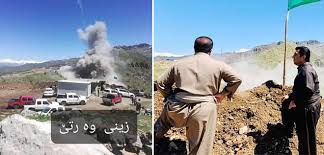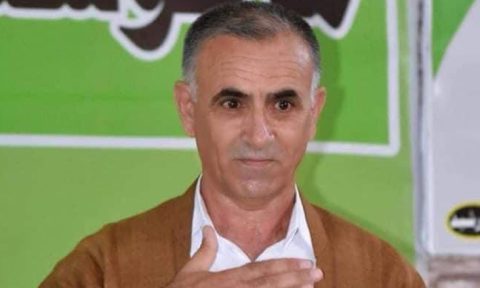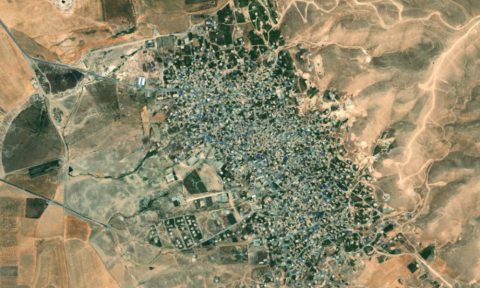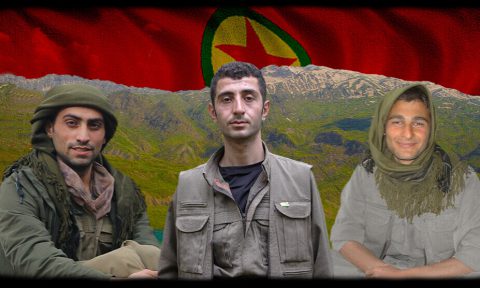Fears are growing of a major confrontation between Kurdish factions in northern Iraq, as tensions continue to rise between Iraq’s Kurdistan Regional Government (KRG) and the Kurdistan Workers’ Party (PKK) over control of a strategic territory. Speculations say that KRG and the Turkish government are conspiring to drive the PKK out of its Qandil headquarters, and eventually out of the Iraqi borders.
A stand-off and media spat over a mountain pass in Zini Warte – as well as an air strike by Turkey on the same PKK base on 15 April – have led to growing friction between both sides.

Although the PKK, and the KRG’s rulers – the Kurdistan Democratic Party (KDP) and Patriotic Union of Kurdistan (PUK) – all grew out of movements to support Kurdish rights, the different groups have often clashed over strategy and ideology down the decades.
“Turkey is preparing a major operation against the PKK stronghold in Qandil” – PUK intelligence source
While the PKK has long been based in the Qandil mountains in northern Iraq, where they have pressed their decades-long war with Turkey, the KDP has worried that the group’s presence in the region could threaten stability as well as its relations with the Turkish government, which are very close. So close that the Kurdish opposition often calls the KDP traitors.
On 20 April, the KRG president, Nechirvan Barzani, said that the PKK’s presence in the Kurdish region was not “legitimate”. “The PKK should stay away from creating problems for the Kurdistan region. The Kurdistan region is not PKK’s area of activity, has never been, and should not be,” he said. “We are part of Iraq, and the Kurdistan region, within this framework, will never accept another power to create problems for its neighbours.”
Multiple reliable sources within the PUK’s intelligence network told us that the current repositioning in Zini Warta was a precursor to an assault on the PKK.

“Turkey is preparing a major operation against the PKK stronghold in Qandil,” he said.
The pressure is still high at the pass in Zini Warte, in the mountains of Iraqi Kurdistan, after a stand-off that is lasting for weeks now.
The pass is very strategic to all parties involved, as it connects two valleys, one leading to Ranya’s plains to the south and the other connecting with the Turkish and Iranian borders to the north. It also leads close to the Qandil mountains, and thus to the headquarters of the PKK.
Earlier in March, the installation of a military base on the pass by a group of KDP-aligned Pershmerga fighters led to protests from locals in the area.
I don’t think deploying artillery, digging trenches and building fortifications are good options to fight the [coronavirus] pandemic – Zagros Hiwa, KCK spokesperson
The KDP Peshmergas have stated that they were solely dispatched to the pass to monitor traffic, in an attempt to prevent the spread of coronavirus potentially brought by people arriving from Iran and to fight smuggling. But the PKK viewed the move as an act of provocation.
“The KDP has deployed heavily armed Peshmerga to this area, under the pretext of fighting the coronavirus pandemic,” said Zagros Hiwa, the spokesperson of the KCK/PKK.

Although the village of Warte is supposed to be in the PUK area of control, the city hall is held by a KDP mayor, which led to accusations that he had helped facilitate the creation of a KDP outpost on the pass. Following the installation of the base, PUK soldiers advanced to the pass and pressured the KDP soldiers to withdraw. They were soon joined by the PKK, who demanded both parties’ withdrawal. This led to a military stand-off between three different peshmerga forces.
“We call on all forces to withdraw and de-escalate. We don’t accept any military presence in the area”, Hiwa Zagros stated on TV.
Considered a terrorist organisation by Turkey, the US and EU, the PKK has been repeatedly targeted by air strikes as well as an on-the-ground operation led by the Turkish army since 2016. The Turkish army also relies on a string of military bases all across the region to complicate the movement of PKK militants. Turkish airstrikes have already cost hundreds of lives, as the PKK camps are strategically set up near North-Iraqi villages.
Though Turkey’s presence in Iraq is regarded as illegal by the federal government in Baghdad, the establishment of Turkish military bases in the KRG territory occurred largely without any resistance from the regional government. KDP is known for its close relationship to the Turkish government.
Meanwhile, Zini Warte remains a highly strategic crossroads, since it connects the two plains and the set of mountains that lead to the nearby Turkish border, from where the PKK launches its operations inside Turkey.
In order to pressure both the PUK and the KDP to vacate the pass, PKK fighters eventually set up their own military outpost just next to the KDP’s, only to have it bombed by a Turkish drone a few days later.
“Despite reports stating the death of only three or five militants, the Turkish drones killed no less than 11 PKK fighters with two different air strikes,” said the PKK intelligence source.
As the local population grew angry at the growing tension and fearing the establishment of yet another Turkish facility in the area, some activists decided to step forward and demand the withdrawal of the KDP and PUK elements. Protests took place in front of the base, while another was scheduled to take place on 29 April but was prevented from happening by PUK security forces.
Some residents have become convinced that the build-up is a precursor to a Turkish-backed attack on the PKK, as PKK-affiliated media outlets state continuously.
“They have a plan to attack the PKK with Turkey, everyone knows that,” said one local, who wished to stay anonymous.
Local pro-PKK journalist Amanj Warte said the most sensitive matter he wished to report on was that soldiers wearing Peshmerga uniforms had been spotted speaking in Turkish in his village of Warte as well as in the KDP positions up on the pass.
At the same time, the KDP claims Turkey was able to conduct its own intelligence reports with its sophisticated technology to locate the PKK outpost. Nechirvan Barzani said so in its official statement on Rudaw TV, laughing at these allegations.










